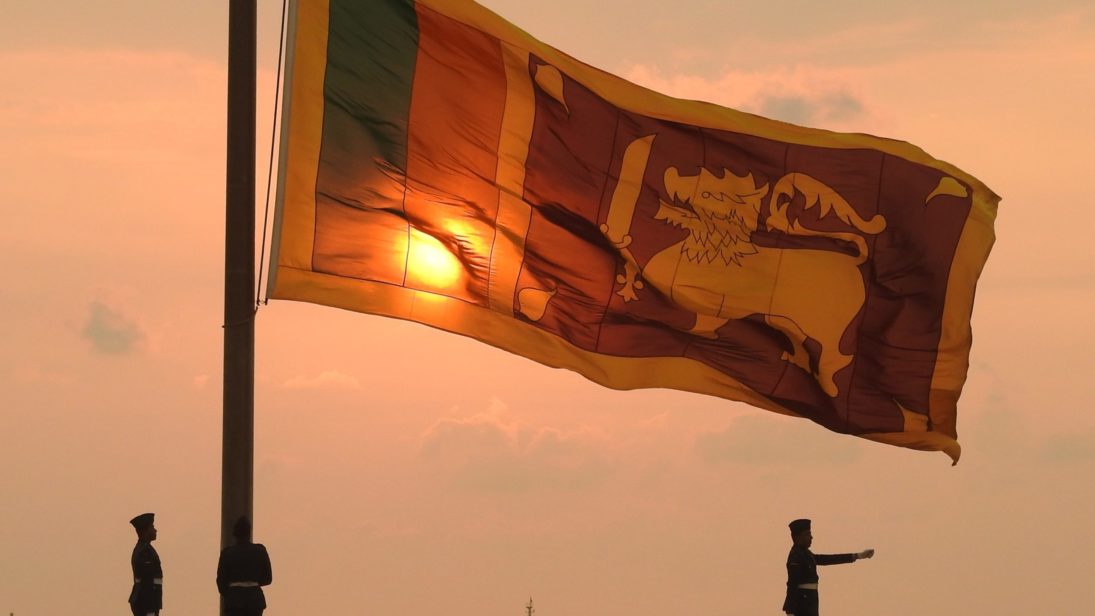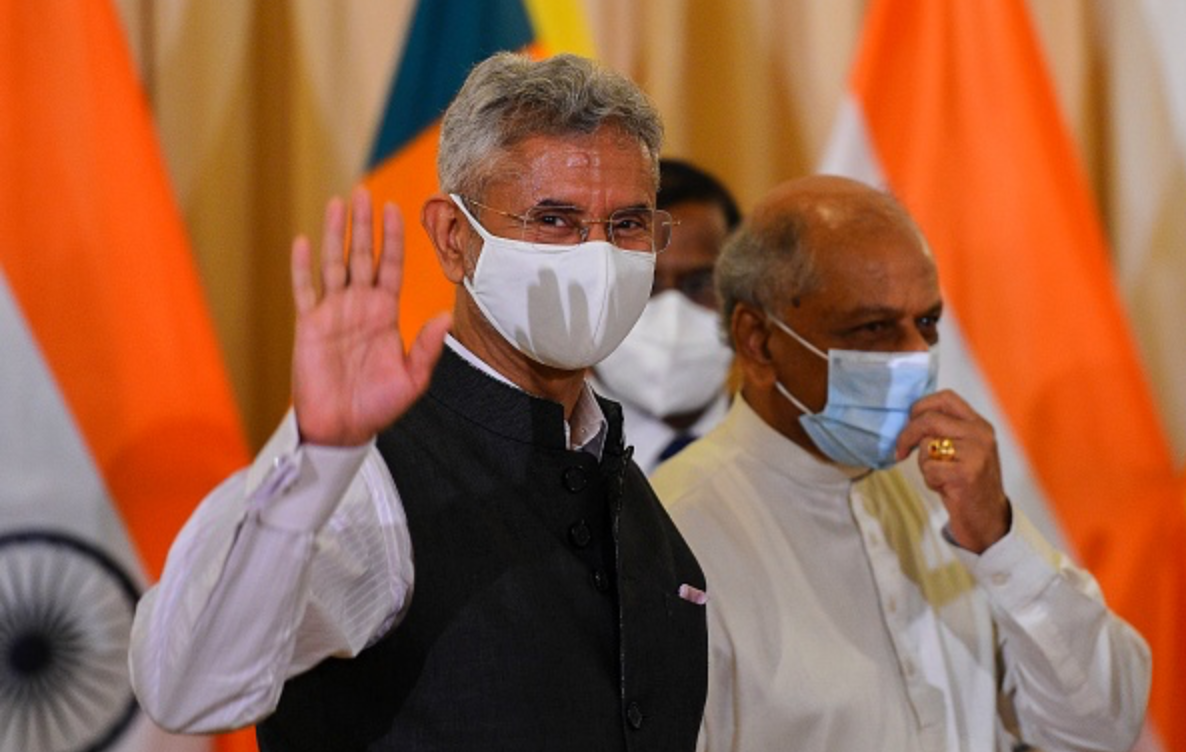
Indian External Affairs Minister Dr. S. Jaishankar recently returned from a three-day visit to Colombo between January 5-7, his first foreign official visit of 2021. His visit is understood to be one of India’s significant foreign policy moves towards the island nation in accordance with its Neighbourhood First Policy, as well as a direct reciprocation of Sri Lanka’s “India first” approach. The visit raises two important questions for onlookers: First, why did Jaishankar choose Sri Lanka for his first overseas visit of 2021? Second, how should India pursue its Neighbourhood First Policy alongside its ongoing battle against COVID-19?
India and Sri Lanka boast of a rich legacy of ethnic, cultural, and linguistic ties, and the Tamil factor is a crucial testament to their historically strong relations.
Foreign Ministers’ Meet in Colombo
India and Sri Lanka boast of a rich legacy of ethnic, cultural, and linguistic ties, and the Tamil factor is a crucial testament to their historically strong relations. In fact, one of the important aspects of Jaishankar’s visit was his message regarding the importance of equality for the minority Tamil community in Sri Lanka, particularly in reference to the ongoing national reconciliation process. In a strong pitch for Tamil reconciliation, Jaishankar and his counterpart, Dinesh Gunawardena, principally discussed issues pertaining to development, meaningful devolution, and the role of provincial councils.
One of the key facets of the reconciliation process is the 13th Amendment to the Sri Lankan constitution. This amendment essentially led to the creation of Provincial Councils and assured power sharing arrangements for the country’s nine provinces to self-govern. The amendment was crucially highlighted by Jaishankar in his reference to Sri Lanka’s commitment to equality, justice, peace, and dignity for Sri Lankan Tamils. India has long been pressing its neighbor to fulfill the aspirations of Sri Lankan Tamils, and the subject was also brought for discussion during the virtual bilateral summit between Prime Ministers Narendra Modi and Mahinda Rajapaksa in September 2020. Rajapaksa responded positively to Modi’s request for the implementation of the 13th Amendment by asserting that the expectations of all ethnic groups, including those of the Tamil minority, will be met as per constitutional provisions.
The 13th Amendment is an important matter of discussion between India and Sri Lanka, for it was a result of the Indo-Lanka Accord of July 1987, signed by then Indian Prime Minister Rajiv Gandhi and Sri Lankan President J.R. Jayawardene. However, some influential Sinhala Buddhists in Sri Lanka have lately been pushing the government to scrap this amendment, alleging that the provincial councils are “white elephants” and that the system gives too much power to the Tamil minority in the country. Therefore, Jaishankar’s message was considered timely, especially by the Indian Tamil community, as it would constitute a diplomatic and political embarrassment for India were the amendment to be abolished.

India’s Sri Lanka Diplomacy through Neighbourhood First Policy
Sri Lanka occupies a central place in India’s Neighbourhood First Policy and its vision for Security and Growth for All in the Region. The two neighbors place great importance on one another and their relationship, which is demonstrated through their consistent diplomatic outreach and high-level interactions.
In Sri Lanka’s effort to curb the spread of COVID-19, Gunawardena indicated the country’s interest in accessing vaccines from India in an attempt to bring the relationship to new heights. With the vaccine becoming a major tool for diplomacy, there could be a significant boost to New Delhi-Colombo relations as India emerges as one of the world’s most important vaccine manufacturing industries. Gunawardena also expressed gratitude for the positive impact of India’s Neighbourhood First Policy on Sri Lanka’s health sector and economy, as well as for India’s agreement to prioritize Sri Lanka when supplying the vaccine.
Defense and security cooperation comprises another integral part of India’s Neighbourhood First Policy. In line with all previous joint statements from Indian and Sri Lankan officials, the recent meeting between Jaishankar and Gunawardena emphasized their shared interest in ensuring maritime security and safety. India also assured that its efforts as first responder for regional emergency situations would continue into the future. Most recently, the collective hands of the Indian Navy and Coast Guard and Sri Lanka Navy controlled a fire and explosion onboard oil tanker MT New Diamond.
However, one of the discomforts in the Indo-Lanka relationship, which was considered a positive trajectory until last year, is the East Container Terminal (ECT) project in Sri Lanka. The construction of the ECT at the Colombo Port is a trilateral project signed by India, Japan, and Sri Lanka in May 2019. It offers 100 percent ownership of the ECT to the Sri Lanka Ports Authority, while the Terminal Operations Company is jointly owned between the three, with Sri Lanka holding 51 percent of the stake and India and Japan retaining the other 49 percent. However, with regular outcries from local trade unions, who worry that ownership of ECT will be ceded to India, and a subsequent review of the matter by the government, work at the port has stalled since July 2020.
On January 6, 2021 Prime Minister Rajapaksa made a statement in the Parliament, assuring that “the present government has not decided to hand over the management of the ECT, in whole or in part, to any foreign company.” While this raises some doubts in New Delhi and Tokyo, it remains unclear how things will unfold with respect to Colombo’s regional infrastructure partnerships.
In choosing Sri Lanka for his maiden foreign visit of 2021, Jaishankar crucially indicated India’s stance to strengthen its close ties with the island nation.
The Way Forward
In choosing Sri Lanka for his maiden foreign visit of 2021, Jaishankar crucially indicated India’s stance to strengthen its close ties with the island nation. In the ongoing fight against COVID-19, India’s Neighbourhood First Policy is a vital area for cooperation through vaccine diplomacy. COVID-19 has created numerous uncertainties and challenges to the world’s economies. India must continue to support her neighbors in providing health support. New Delhi’s vaccine diplomacy is, therefore, an opportunity to reaffirm its ties in the region. Despite suspicion of Beijing’s increasing influence on the confusion mounting over the ECT project, the need for India to focus attention on other significant areas of cooperation, such as housing assistance, skill development, capacity building, etc., should not be overlooked. India’s foreign policy ambitions will require a continued proactive approach in the region, which necessitates an increased focus on bolstering ties with its neighbors, such as Sri Lanka.
***
Image 1: Wikimedia Commons
Image 2: Ishara S. Kodikara via Getty Images


